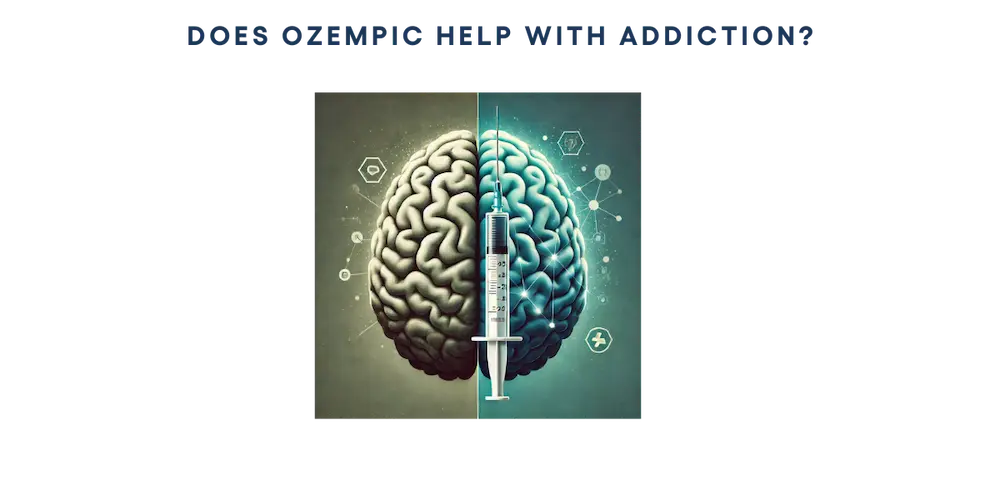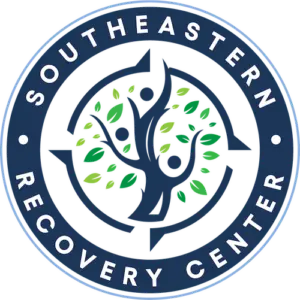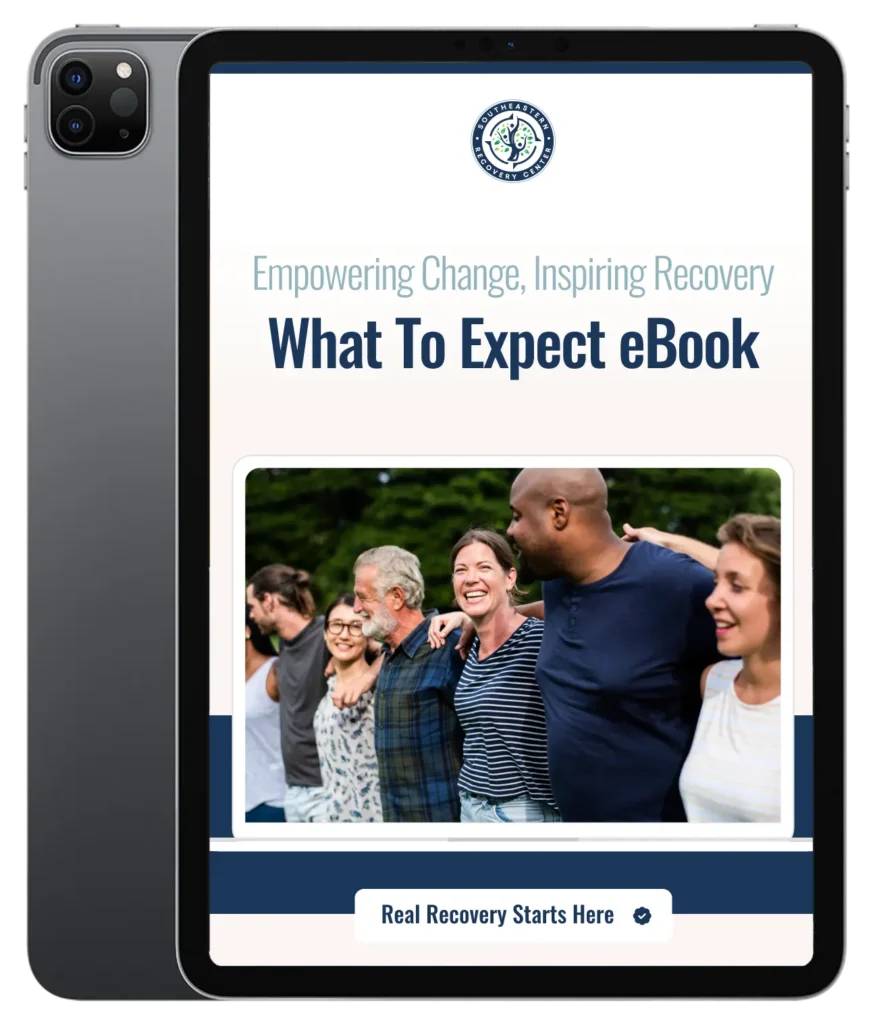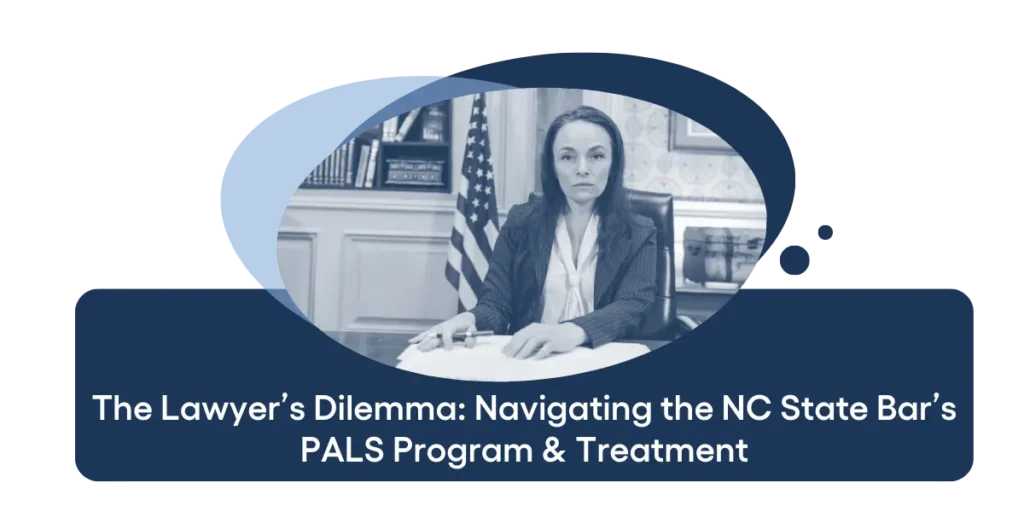Some Ozempic users have reported that the medication reduced their urge to drink or use other addictive substances.
Ozempic, a medication primarily prescribed for managing type 2 diabetes and aiding in weight loss, has recently gained attention for its potential off-label use in treating addiction. With millions of people around the world struggling with addiction, there is a growing interest in new and innovative treatment options. But can Ozempic, a drug typically used for metabolic conditions, help those struggling with addictive behaviors? Learn about the science behind Ozempic, its effects on addiction, and whether it holds promise as a treatment for various types of addiction.
What is Ozempic?
Ozempic is the brand name for semaglutide, a medication classified as a glucagon-like peptide-1 (GLP-1) receptor agonist. It is mainly prescribed to individuals with type 2 diabetes to help regulate blood sugar levels and, more recently, has been used to assist with weight management. The drug works by mimicking the function of the GLP-1 hormone, which helps the pancreas produce insulin more effectively, slows down the rate of digestion, and reduces hunger or cravings.
While Ozempic’s primary use remains in managing diabetes and obesity, researchers have begun to examine its effects on the brain’s reward pathways, specifically those linked to addiction. Addiction is often tied to chemical changes in the brain, particularly in the areas that regulate cravings and compulsive behaviors. The idea is that Ozempic might influence these areas, making it a promising candidate for further exploration in addiction treatment.
1 in 8 adults in the United States has taken a GLP-1 receptor agonist.
What is Addiction?
Addiction is a complex condition that involves compulsive behaviors often driven by changes in brain chemistry. The dopamine system, mainly its role in the brain’s reward pathways, is central to how addictions form and are sustained. When someone uses addictive substances or engages in addictive behaviors (e.g., gambling), dopamine is released in large amounts, which reinforces the behavior by creating a feeling of pleasure or reward.
Over time, the brain becomes less sensitive to natural rewards, and the person becomes more dependent on the addictive substance or behavior to experience the same level of satisfaction.
The process can create a vicious cycle of cravings and relapse, making addiction notoriously challenging to overcome.
This understanding of how addiction works raises the question: Can medications like Ozempic, which influence the brain’s reward system, help reduce cravings and assist in addiction recovery?

Does Ozempic Help with Addiction?
Although research on Ozempic’s role in addiction treatment is still in its early stages, preliminary studies suggest that GLP-1 receptor agonists like semaglutide may have an impact on the brain’s reward system, specifically the pathways that drive addiction.
A 2019 study published in Molecular Psychiatry found that GLP-1 receptors play a key role in regulating dopamine signaling in the brain. This discovery is significant because dopamine regulation is at the heart of addictive behaviors. By influencing these pathways, semaglutide and similar medications may help reduce cravings and addictive tendencies.
According to the CDC, nearly 21 million Americans suffer from addiction, yet only about 10% of them receive the treatment they need.
If Ozempic can help address cravings and reduce dependency, it could offer an important new treatment option for millions of people struggling with addiction.
Ozempic and Alcohol Addiction
Among the areas of addiction where GLP-1 receptor agonists are being explored, alcohol use disorder (AUD) has received considerable attention. Research indicates that semaglutide may help reduce alcohol consumption by modifying the brain’s response to alcohol-related cues.
A study conducted in 2019 on animal models showed that semaglutide reduced alcohol intake in rats, suggesting that it could have similar effects on humans. The drug appeared to alter how the brain’s reward system responded to alcohol, reducing cravings and the likelihood of relapse.
According to the CDC, nearly 21 million Americans suffer from addiction, yet only about 10% of them receive the treatment they need.
Opioid addiction remains a significant public health crisis, with devastating consequences for individuals, families, and communities. Researchers are also investigating whether GLP-1 receptor agonists like Ozempic could help reduce cravings for opioids and decrease the risk of relapse.
A 2020 study found that activating GLP-1 receptors reduced opioid-seeking behaviors in animal models. This suggests that semaglutide may affect the brain’s reward system in a way that could make opioids less appealing to individuals struggling with addiction.
However, it’s important to note that while the research on opioid addiction and GLP-1 receptor agonists is promising, no human trials have yet confirmed these effects. Still, these early findings offer hope for future treatments.
The opioid epidemic continues to claim thousands of lives in the U.S., with more than 80,000 opioid-related deaths reported in 2021 alone.
How Ozempic Works on Addiction
The underlying mechanism that makes Ozempic effective for addiction treatment is its action on the brain’s GLP-1 receptors, which are found not only in the pancreas but also in the central nervous system. These receptors are involved in regulating appetite, cravings, and impulse control, all of which play a crucial role in addiction.
By stimulating these receptors, Ozempic influences the reward centers in the brain. Specifically, it reduces the release of dopamine in response to addictive substances or behaviors. This reduced dopamine release can make it easier for individuals to avoid substance use and minimize cravings, potentially lowering relapse rates.
In addition to affecting the brain’s reward system, Ozempic slows down gastric emptying, which can also reduce the physical cravings that some individuals experience with food or sugar addiction.
Semaglutide has been explored as a treatment for food addiction as well.
Side Effects and Risks of Ozempic
While Ozempic holds promise for addiction treatment, it is important to consider the potential side effects. Common side effects associated with Ozempic include:
- Nausea
- Vomiting
- Diarrhea
- Decreased appetite
Individuals with certain pre-existing conditions, such as a history of pancreatitis or thyroid cancer, should consult a healthcare provider before considering Ozempic. These conditions can increase the risk of adverse reactions.
Why More Research is Needed
Although the potential for Ozempic to help with addiction is exciting, it’s essential to recognize that the drug is not yet FDA-approved for addiction treatment. Most of the research to date has been conducted on animal models, and while the results are promising, human trials are necessary before it can be recommended as a treatment for addiction.
The National Institute on Drug Abuse (NIDA) and other organizations are continuing to fund research into innovative treatments for addiction, including GLP-1 receptor agonists. As more clinical trials are conducted, we will gain a clearer understanding of whether medications like Ozempic can play a significant role in reducing addiction.
Can Ozempic Help with Addiction?
Ozempic has shown potential in helping manage addiction by influencing the brain’s reward system and reducing cravings. Early research, particularly in the areas of alcohol and opioid addiction, is promising, but more studies are needed before it can be considered a standard treatment option for addiction.
Relapse rates for addiction range between 40-60%, and new treatments are desperately needed to help lower these rates and improve long-term recovery outcomes.
As of now, Ozempic should not be used solely as an addiction treatment, but it could potentially serve as part of a broader recovery plan that includes behavioral therapy, support groups, and other medications. If you are struggling with addiction and are interested in learning more about Ozempic, it is crucial to consult a healthcare provider.
If you or a loved one suffer from addiction, don’t hesitate to reach out to the professionals at Southeastern Recovery Center. Our staff is ready to help you overcome addiction – using methods and programs that are tailored to your unique needs.





